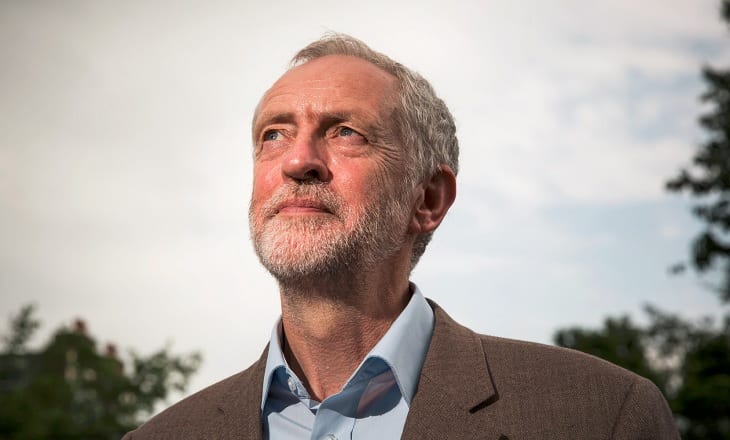The following article was written by Jasper Lawler, Senior Market Analyst at FCA regulated broker London Capital Group Holdings plc (LON:LCG).

Jasper Lawler, LCG
With some of the latest polls putting the gap between The Conservatives and Labour as low as one point, market participants should be considering the very real possibility of a hung parliament and even a Labour victory.
A Survation poll reported on Monday has the Conservatives at 40% and Labour at 39%. Equally, an ICM poll has the two parties with an 11 point gap. Uncertainty about the result has seen gains in GBPUSD capped near 1.30 and the FTSE 100 break to new highs above 7,500 and its best monthly return this year.
What will markets do?
We assume a Labour victory would be negative for both Sterling and the stock market. The going assumption is that a bigger majority could allow Theresa May to soften her approach to Brexit because she would rely less on the support of hard-line EU-sceptics. There’s an argument to be had that a ‘softer Brexit’ under a left-of-centre coalition would be positive for the British pound over the medium term. We don’t buy that. Aggressive posturing from Europe would suggest a ‘Soft Brexit’ whereby concessions on immigration can be met with concessions on the single market is basically impossible.
A Labour victory could see The British pound down 2-3% by Friday morning (GBPUSD 1.25). The market cap of the FTSE 100 stands at around £1.9 trillion. Jeremy Corbyn as British Prime Minister could wipe £75 billion off the value of the country’s leading 100 public companies.
We don’t see the fallout from a Labour government having a lasting effect. The most reliable phenomenon in markets following politically-induced spikes in volatility has been ‘dip-buying.’ The British pound trades against foreign policies and the FTSE 100 lists multinational companies so the UK election cannot be viewed in a vacuum. There are other global factors that the UK election will either diminish of exacerbate.
What are the risks?
Labour tends to favour higher taxes on the wealthy and higher spending on public services, attaching less importance to the national debt. With the country entering at least two-years of economic uncertainty because of the Brexit negotiations, an environment of higher personal and business taxes under Labour could tip the economy over the edge.
Higher spending under Labour would be positive for economic growth in the near term. The degree to which the spending would boost the economy, if at all, would depend on where Labour chooses to spend the money. Spending on healthcare typically creates lower paying jobs than say Infrastructure spending.
Perhaps the biggest risk to bond markets from a Labour victory would be a sovereign debt downgrade from ratings agencies. Reducing the deficit will become an even tougher task if a debt downgrade increases the cost of borrowing for the British government.
The Conservatives and Labour both have a pretty similar policy with respect to Brexit – both voted in favour of triggering Article 50. Given that more than 60 Labour MPs rejected the Article 50 bill, there is a marginally higher chance that Labour gives in to the idea of a second referendum. However, Labour should recognise that a lot of its base supports Brexit. We think that realistically Labour wouldn’t handle negotiations any differently than the Conservatives.
Will Labour actually win?
As unreliable as polls have been, a Labour Party victory seems unlikely, with a landslide almost impossible. Opposition leader Jeremy Corbyn has brought some of his critics on-board with a manifesto that gives voters a clear choice between the main political parties. Incidentally, we think Jeremy Corbyn would stay on as Labour leader no matter the result.
The most favourable polls to Labour, only show them eating into some of the Tory lead – perhaps forcing a minority government – ie nobody expects a Labour win. Because a Labour win is so unexpected, it would create the biggest fireworks in markets.
The information and comments provided herein under no circumstances are to be considered an offer or solicitation to invest and nothing herein should be construed as investment advice. The information provided is believed to be accurate at the date the information is produced. Losses can exceed deposits.
